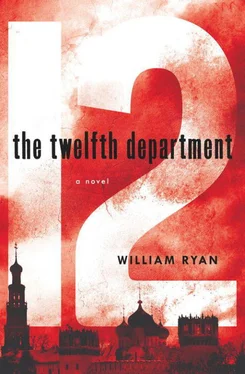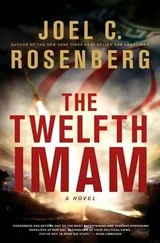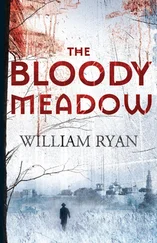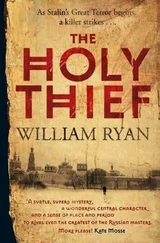“I see,” Chestnova said, pressing a thumb to the dead man’s eye. The elasticity would give her another clue as to the time of death.
“No more than two or three hours ago, I’d say. I doubt his body temperature will indicate much different. It wasn’t yesterday, that’s for sure. Does that tally with your ideas?”
“It does.”
Korolev looked down at the body and had the sense that everything around him was receding, leaving just him—and the corpse.
“Chief?”
Korolev started, aware that he had somehow become the center of attention. He sighed. That was the thing about death—it had a way of slipping into your thoughts and taking them over, leaving you forgetting where you were.
“Yes, Slivka, yes. I hear you.” Korolev rubbed the palm of his hand across his jaw once or twice, savoring the bristly scrape. He had to focus on the job in hand.
He turned to regard Chestnova.
“Zinaida Petrovna, we can see the bullet hole in the back of his head, and we can draw our own conclusions. The question is, is there anything else you’d like to bring to our attention?”
“No. The bullet killed him, if that’s what you’re asking. I doubt the autopsy will tell us otherwise.”
“Nothing that might indicate a struggle of any kind? Or resistance?”
“Not that I can see,” Chestnova said, placing the head gently back on the desk. “I studied under him at university. An ambitious man—not pleasant about it, either. Have you any idea who killed him?”
“None,” Korolev said. “So he wasn’t well-liked?”
“Not at all,” Chestnova said. “Not by his colleagues and certainly not by the students. Feared, perhaps.”
“Feared? Well that’s useful to know.”
Korolev examined the dead man’s face. It was difficult to deduce a corpse’s personality just from looking at it. Death rubbed away much of a person’s character—and left only a misleading impression at best. But Chestnova was someone whose opinion he could attach some weight to. If she said Azarov wasn’t a pleasant man, then he believed it. Especially since his maid had given a hint or two along the same lines.
“Well, he must have trusted whoever shot him,” Korolev said. “Why else would a man sit at his desk calmly while his killer stood behind him?”
“Just because he wasn’t afraid of the killer, doesn’t mean he didn’t know they despised him,” Slivka said, with a shrug of her shoulders.
“Perhaps. Ushakov, I’d like to have a look at what he was working on at the time of the murder. Can you clean the blood off these?”
Korolev pointed to the blood-caked papers.
“We’ll do our best—I’ll let you know how we get on. In the meantime, I’ve extracted your bullet from the desk.” He held up a small brown paper bag. “It looks like a .45 caliber—big, in other words. It must have been fired from close range but it barely made a dent, really—for its size.”
There was something in Ushakov’s tone that suggested he had some thoughts on this.
“Go on.”
“It’s just a hunch, but I’m thinking a very small pistol. One of those waistcoat weapons, you know the kind. We’ve asked the local Militia station to pull all the firearms certificates for the building. The bullet’s a bit battered but we should have enough to match it to a weapon. If we locate the weapon, that is.”
Korolev glanced toward Slivka.
“We’ll go through the place atom by atom.”
“Well, I’d better go and meet the late professor’s colleagues.”
Korolev said his farewells. On his way out, he wasn’t surprised to find Priudski the doorman still loitering on the landing, barely visible in the gloomy light.
“Comrade Priudski?” Korolev asked.
“Yes?”
“I need to call Petrovka. Can I use your phone?”
“Of course, Comrade Korolev. Of course.”
Priudski led him down the staircase and, when they reached the bottom, ushered Korolev into his small office. The doorman picked up the receiver, tapping three times for the operator.
“I need to call Moscow CID,” Priudski said. “Petrovka.”
“Thank you,” Korolev said, taking the receiver from the smaller man and holding the door open for him.
The doorman left the room with an expression that reminded Korolev of a scolded schoolboy—but if Korolev was going to make a report to Popov on a case like this, he’d rather it wasn’t overheard by a fellow like Priudski.
Korolev had never heard of the Azarov Institute before but he often traveled along Bolshaya Yakimanka and knew the building well enough from the outside. At one time, long before the Revolution, it must have been the residence of someone who’d had money to burn—and had decided to burn a good portion of it on a large and ornate mansion. Since then a revolution, the Moscow winter, and the passage of time had worked on it, turning once bright-red bricks to brown, and white marble to gray. And what time and weather hadn’t managed to alter, man had. Bars and barbed wire guarded each window and ledge—and the high wall that surrounded the grounds was topped with spikes.
Korolev parked the car and got out, first walking to the heavy oak front door, conscious that large raindrops were beginning to spatter the pavement around him, and then, following the directions on a handwritten sign, around the corner and down a narrow laneway, his mood darkening with each step. Two men in black hooded rain cloaks stood waiting for him in front of a small sentry box that guarded the side entrance. They watched him approach with apparent indifference.
“I’m from Petrovka,” he said, showing his identification card to the nearest of the two—a heavyset man with blank blue eyes and a hard face. “I’m—”
“From Moscow CID. Korolev.” The guard said this without bothering to look at his papers. He sounded bored.
“You’re expected, Comrade Captain,” the second guard said.
“You knew I was coming?”
“Please come with me, Comrade Captain.” The second guard spoke as if he were persuading a temperamental child to perform an unpleasant task. “The deputy director will answer your questions.”
He stepped aside so that Korolev could pass and, after a brief pause, Korolev did just that. After all, the rain was beginning to come down fatter and faster—pittering and pattering around him on the laneway’s cobbles.
It was unsettling, of course, that they’d been expecting him, but perhaps Popov had thought it wise to call ahead. Or Priudski. Anyway, he was a senior detective from Petrovka—it wasn’t likely that entering the place on his own would be dangerous. These were just ordinary guards, doing their duty—same as he was.
But as he followed the guard along the gravel path, he caught sight of two concrete buildings. They were invisible from the street because of the institute’s high perimeter walls—they were only two stories and set well back—and, at first glance they looked like ordinary office buildings or some such. A second glance, however, revealed the heavy metal doors and the shuttered windows, the thick walls and the regular lampposts that surrounded them. And it occurred to him that these were buildings designed not to keep people out—but to keep them in.
* * *
The man behind the large desk stood as he entered, giving him a smile that seemed genuine enough.
“Captain Korolev, I’m pleased to meet you.”
The deputy director was young, not yet forty, broad-shouldered and in good shape. In fact he had the sort of rude health that suggested he’d be more comfortable working in a field than sitting in an office.
“Thank you for seeing me at such short notice,” Korolev began, before a roll of thunder seemed to rattle the very building itself. A simultaneous gust of wind sent splashes of rain through an open window onto the wooden floor. The deputy director stood up and, with an incongruous half-bow, moved quickly to close it.
Читать дальше












